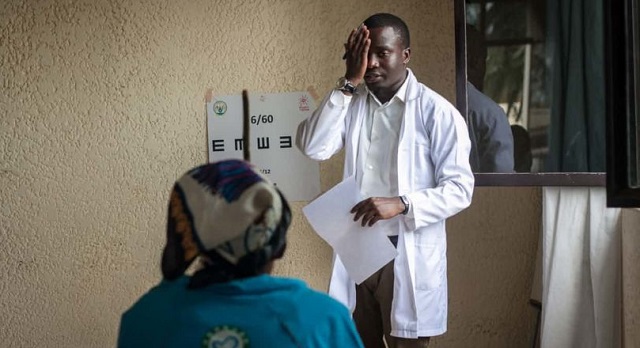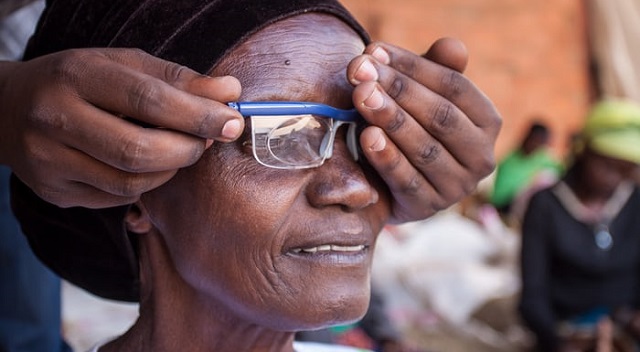
In a country where a third of people have sight problems, specialist nurses have visited all 15,000 villages as part of a life-changing project
Kampala, Uganda | VERITY BOWMAN | Rwanda has become the first low-income country to provide universal eye care for its population of 12 million people.
The government has partnered with the organisation Vision for a Nation (VFAN) to train more than 3,000 eye care nurses based in 502 local health centres, prescribing glasses and referring those with serious eye problems to national clinics. Nurses have visited each of Rwanda’s 15,000 villages.
Dr Jennifer Yip, from the London School of Hygiene and Tropical Medicine, explained the vital importance of looking after people’s sight. “Without the resources to access eye care you are significantly more likely to become blind.
“We’ve found that 34% of the population in Rwanda could benefit from some form of eye care. This ranges from very minor symptoms [to] those requiring life-changing surgery.”
Short sightedness is the most common eye-related ailment in Rwanda, and more than 80% of eye conditions there are considered preventable. The country ranks 159th on the Human Development Index, and only 19.8% of the population have access to electricity.

Dr Graeme Mackenzie, a consultant to Vision for a Nation, described how untreated sight conditions, particularly in women, trap families in a cycle of poverty.
“Coffee bean sorting is quite a business in Rwanda,” said Mackenzie. “It is usually females employed in this industry, and their livelihood depends on their ability to sort beans. Around the age of 45 they lose their ability to see well. Their quality of work suffers and therefore their income suffers.
“Now, the breadwinner is no longer earning enough. The young girls in the family are pulled out of school so they can work in agriculture to help. They do not finish their education and the whole cycle of poverty is just reinforced.”
Poor vision is a significant health and development challenge. Globally, 253 million people live with vision impairment.
Tony Hulton, VFAN’s chief executive, said eye care is essential to achieving the sustainable development goals. “We’re not going to fully allow countries to reach their full potential [and move] out of poverty without eye care. Vision and poor sight is a largely unaddressed issue and it doesn’t have the crowds supporting it.”
Rwanda’s minister of health, Diane Gashumba, said: “Rwanda is leading the way in Africa by providing all its people with affordable eye care. This has been made possible by the great collaboration between the government of Rwanda and Vision for a Nation. The impact of this initiative has been enormous.”
Up next for VFAN is Ghana. Though the country’s larger population and geographical makeup represent additional barriers, Hulton is convinced of the value of the company’s mission. “We do want to focus on the most vulnerable because they are the people who have the least access to both public and private solutions,” he said.
 The Independent Uganda: You get the Truth we Pay the Price
The Independent Uganda: You get the Truth we Pay the Price




Great initiative!
The eyes are a very sensitive organ that is constantly exposed to external factors. Not to mention that the food we eat, the harmful habits, the stress also affects the sight. We need to be very careful and regularly visit an ophthalmologist.
Sometimes symptoms appear that indicate that we have a vision problem, but we do not pay attention to them, and vice versa – symptoms appear in the eye area, but at the same time the problem is in fact related to the heart.